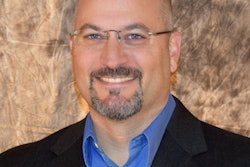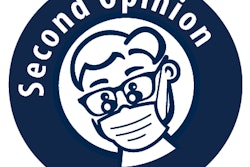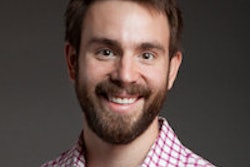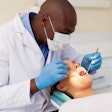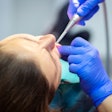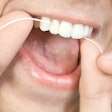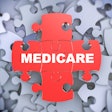
WASHINGTON, DC - Dental professionals spend much of their time focused on minute details: measuring a periodontal pocket, examining a soft spot in the enamel, placing a restoration in a tooth.
But to ensure the oral health of the U.S. as a whole, members of the profession also need to step back and see the big picture.
That was the prevailing message at the annual Institute for Oral Health (IOH) conference, held in Washington, DC, on September 12 and 13.
"How can you make the impact broader than your own two hands? Policy is an avenue. It's an avenue we have to take advantage of," said IOH Executive Director Ron Inge, DDS, the executive director of the Seattle-based organization that hosted the conference, dedicated this year to examining the impact of public policy on oral health care."
“Oral health is essential. We get that now.”
Though programs such as Medicaid and the Children's Health Insurance Program (CHIP) have expanded care to the poor and working poor, millions of children and adults still lack access, stressed keynote speaker Burton Edelstein, DDS, MPH, a professor of dentistry and health policy management at Columbia University and founder of the Children's Dental Health Project (CDHP), a Washington, DC-based organization that advocates for wide access to dental care.
Dr. Edelstein reminded conference attendees of the 2007 death of Deamonte Driver, a 12-year-old Medicaid child in Maryland, as an example of an event that came to signify the shortcomings of the Medicaid system. And other deaths, less publicized, provide additional evidence of the lack of care, he noted. Roughly 8,000 Americans die each year of oral cancers that might have been detected. Anesthesia deaths occur when dentists overreach their skills while treating conditions that might have been prevented in the first place. A study published this month in the Journal of Endodontics that found 66 deaths among a total of 61,439 patients hospitalized with periapical abscesses between 2000 and 2008, Dr. Edelstein noted.
“The ultimate shame, the ultimate failure of our profession,” he said, “is of course death from a preventable illness.”
None of these deaths have transformed the dental system. But there are powerful forces on the horizon that may, and dentists need to understand them, he said.
For example, better-informed consumers are questioning the kind of care their providers offer. And "vertically integrated healthcare systems" are shifting the way care is compensated, from a model that rewards the treatment of disease to one that focuses on prevention.
Dentists need to think in larger terms about the way oral health quality is measured, Dr. Edelstein emphasized.
"Is it about the fit of a crown or health outcomes?" he asked.
ACA benefits, barriers
While the oral health provisions of the Patient Protection and Affordable Care Act (ACA) are complex and still evolving, they do hold promise, according to Dr. Edelstein. The inclusion of pediatric dental benefits among the 10 essential health benefits required by the healthcare reform law signals a growing recognition that oral health is part of overall health, he said.
The ACA "puts oral health back into health," he noted. "It puts children's mouths back into children." In contrast, Medicaid and CHIP only added mandatory dental benefits for children as afterthoughts, Dr. Edelstein noted.
"Oral health is essential. We get that now," he said.
Groups such as the CDHP worked hard to get pediatric dental benefits included in the healthcare reform law. Yet due to details of the law's implementation and the fact that dental benefits are nearly always sold separately from medical insurance, it remains to be seen how successful states will be in offering them on their exchanges and whether families will decide to buy them, said Colin Reusch, a senior policy analyst at CDHP.
"It's complicated," he said. "Public policy is almost always complicated."
Sen. Benjamin Cardin (D-MD), spoke to the difficult task of shaping public policy amid the distractions of international events and competing domestic priorities. Access to dental care for Medicaid children in Maryland has improved, thanks to reforms made since 2007, said Cardin, who went on to praise efforts to strengthen the system nationwide and to expand adult Medicaid coverage which is now extremely limited in many states.
With a threat of a government shutdown looming and a faction of Republicans still working to defund healthcare reform entirely, however, supporters are currently working simply to hold on to what has been gained, Cardin noted. "We are fighting to preserve a federal role," he said.
As the IOH conference proceeded, across town on Capitol Hill, a panel led by Sen. Bernie Sanders (I-VT) heard testimony about the lack of dental services for millions of Americans. Witnesses blamed factors such as skyrocketing costs, inadequate insurance, and a lack of preventive care for contributing to ballooning emergency costs and rampant untreated disease.
Sanders is planning to introduce legislation to expand comprehensive dental coverage to millions of Americans through Medicare, Medicaid, the ACA, and the Department of Veterans Affairs. His measure would also increase access to dental services at community health centers and boost support for mobile clinics and dental clinics in schools.
"When people cannot get to a dentist when they need one, they often end up in emergency rooms. It just doesn't make sense for us to spend so much money on those who wind up in hospitals but refuse to help people get the care they need before it's too late," Sanders said.
At the IOH conference, speakers commended Sanders. But they held out little chance of passage for Sanders' proposed legislation, given the current climate.
"As of now, it has a chance that's slim to none," Reusch said. Still, he noted, policy should be crafted so it is ready for another day.




